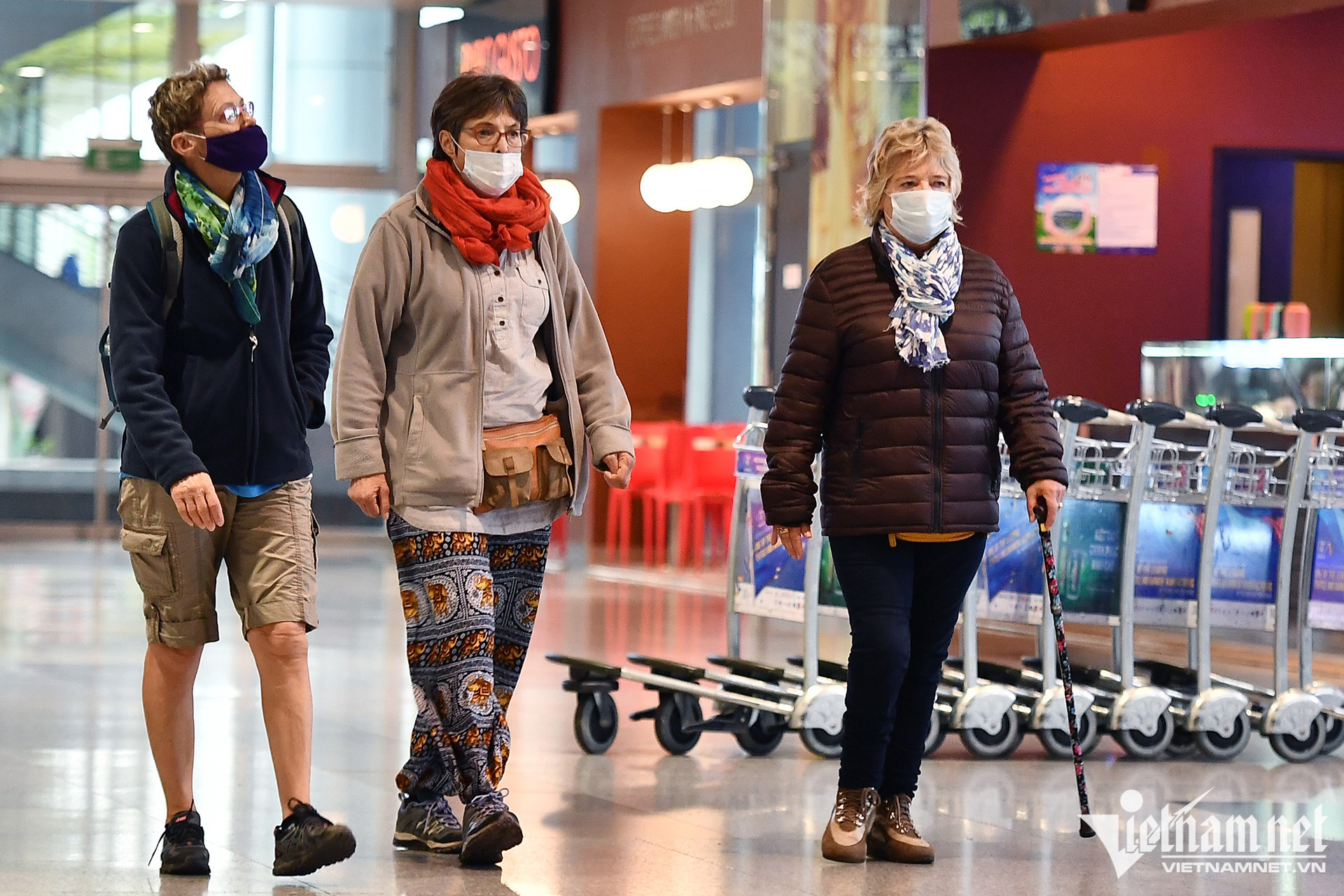Travel firms fear visa policy may leave Vietnam tourism lagging behind
Complicated procedures for visas to Vietnam are disappointing many foreign tourists, resulting in travelers deciding to choose other regional destinations.
The CEO of a Hanoi-based travel firm, who asked not to be named, told VietNamNet that her firm had recently canceled all services (air ticket, hotel and restaurant bookings) for a group of 25 Iranian travelers.
The travelers initially planned to come to Vietnam in early February and apply for the visas themselves.
As procedures for visas to Vietnam take time, the CEO advised Iranian travelers to begin following procedures for visas prior to Jan 18-19, because the Tet holiday would begin on Jan 20. She also warned that it would be too late if travelers applied for visas after the holiday.
However, due to vague replies and delays in receiving answers to when the visas would be granted, travelers finally decided to travel to Thailand instead.
“I cannot understand why it is so difficult to apply for visas. Ten years ago, I mentioned the problem during an interview on Vietnam Television. But problem still exists,” she said.
At conferences discussing solutions to tourism development, visa policy is always cited as a barrier that keeps foreign travelers away.
Luong Hoai Nam, a tourism expert, said that applying for visas is a cumbersome procedure for everyone, including Vietnamese who want to travel abroad. That is why countries that attach importance to tourism development such as Thailand, Singapore and Malaysia waive some formalities to attract more travelers.
EuroCham, in its 2023 White Book, commented that Vietnam’s requirement that foreign travelers must have visas before departure is too strict. This, plus the time needed and the expenses travelers have to pay for procedures, is a barrier to independent European travelers who have high spending levels.
At this time, when the number of Chinese and Russian travelers to Vietnam remains modest, the expansion of the list of countries subject to visa waiver is a wise move as it helps diversify tourism markets.
EuroCham experts pointed out that granting 3-month visas to travelers from Europe who want to have a long stay, especially during the winter holiday, would help Vietnam attract travelers who spend more.
Long-term visas are mostly wanted by retired people who have money and want to stay at destinations longer than usual.
Meanwhile, Vietnam is now applying a visa waiver policy for citizens for 25 countries, and the visa waiver is for only 15 days (the figure is 30 days or more for other ASEAN countries). This not only imposes limitations on the time travelers can stay in Vietnam, but also makes it difficult for travel firms to design tours.
Worries
As a competitor, Thailand is always cited as a typical example of successful tourism development. Experts believe that Vietnam needs to learn from Thailand to lure foreign travelers.
Thailand’s policies to attract travelers, including an open visa policy, helped the country attract 11.8 million foreign travelers in 2022, which brought revenue of $16 billion. Thailand’s recovery rates in the number of international arrivals (25 percent) and revenue from international visitors (28.6 percent) are by far higher than Vietnam. The country plans to receive 25 million foreign travelers this year and 80 million by 2027, double the number in 2019.
Meanwhile, Vietnam, one of the first countries reopening to foreign travelers after Covid-19, has a recovery rate at the bottom of the list of regional countries.
In 2022, Vietnam received 3.6 million foreign travelers, or just 70 percent of the plan. The gap between the number of tourists to Thailand and the number to Vietnam is getting wider – 40 million vs 18 million in 2019 and three times now.
Tran Nguyen, deputy CEO of Sun World, said the target of receiving 8 million foreign travelers this year may be unattainable as neighboring countries have launched programs to lure travelers.
Need to simplify procedures
The number of foreign travelers to Vietnam is just one-fifth of domestic travelers, but revenue from foreign travelers is 1.4 times higher. Foreign travelers are an important source of foreign currency for the country.
With average spending much higher than domestic travelers, attracting foreign travelers to Vietnam will help quickly recover the tourism industry and stimulate demand in related fields, such as aviation, transport, trade, service and labor market.
Of many measures suggested to attract travelers, the visa policy is a top priority. Nguyen stressed that Vietnam needs to simplify visa procedures and promote online visa application.
She revealed that some clients in Thailand said they wanted to go to Vietnam for a few days, but finally booked tours to Singapore because of Vietnam’s visa procedures.
“They are the travelers with high spending. They don’t need fee exemption, they just need simple procedures,” she said.
Nguyen proposed that Vietnam should expand the list of countries subject to Vietnam’s unilateral visa waiver, including the 80 countries which can get electronic visas, so as to lure more travelers this summer.
EuroCham has recommended the Vietnamese government to consider a 3-6-month visa waiver for European elites who want to have a long vacation in Vietnam.
Ngoc Ha
Source: https://vietnamnet.vn/en/travel-firms-fear-visa-policy-may-leave-vietnam-tourism-lagging-behind-2115088.html


 Thailand
Thailand




